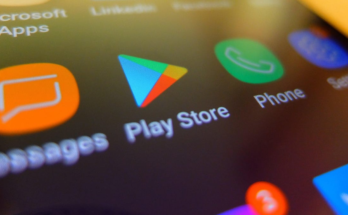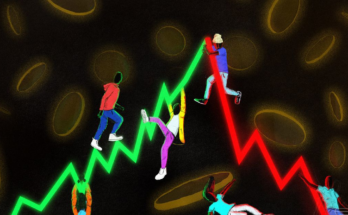
Stock trading app Robinhood is seeking financial advisers to help it go public as soon as the spring of 2021, Bloomberg reported on Tuesday.
Robinhood is a trading app that makes it simple to play the markets. It’s reportedly surging in usership, thanks in part to the ongoing coronavirus pandemic, which has dramatically stripped opportunities for hobbies or interests that require leaving the home. According to Bloomberg, after a recent fundraising round of $460 million, the company now values itself at around $11.7 billion, claims to have 13 million registered users, and has expanded to gold, crypto, and other financial instruments. Bloomberg writes:
Robinhood’s investors include Sequoia, DST Global, Ribbit Capital, Andreessen Horowitz, Index Ventures. and D1 Capital Partners.
An IPO would follow a huge boom in volume on the platform, with stay-at-home orders during the coronavirus pandemic driving up retail trading. Robinhood has also tapped into a new demographic—millennial and Gen-Z traders. Robinhood has 13 million accounts on its platform, which allows for trading in options, gold, and cryptocurrencies as well as equities and funds.
Traditional investment firms will find it “difficult” to compete against Robinhood, Bloomberg Intelligence head of market structure research Larry Tabb was quoted as saying.
Robinhood’s rapid growth hasn’t been without issues—Bloomberg reported in August 2020 that public records from the Federal Trade Commission showed some 400 complaints filed against Robinhood, or “roughly four times more than competitors like Charles Schwab Corp. and Fidelity Investments’ brokerage unit.” The complaints mostly consisted of inexperienced investors who signed up for the app and quickly swindled themselves out of holdings—or say they got screwed over by technical problems of Robinhood’s fault, such as a massive outage in March 2020 that coincided with dramatic disruption in the stock market over the novel coronavirus.
G/O Media may get a commission
Users told consumer protection agencies that they were unable to buy or sell stock and were functionally locked out of doing any trading over the day-plus course of the outage, allegedly creating huge losses or missing out on profit. Two documents obtained by Bloomberg detailed complaints from an Atlanta investor claimed to have lost $6,000 while trying to get in contact with Robinhood’s apparently absentee customer service team, as well as another in Massachusetts who said they lost $20,000 after they couldn’t reach an actual human being at the company capable of closing their account. Robinhood has experienced subsequent outages as well.
Robinhood’s reliance on risky high-frequency trading processed by third-party firms instead of a stock exchange has raised eyebrows, and the Securities and Exchange Commission as well as the Financial Industry Regulatory Authority are investigating its handling of the March outage. Robinhood users have also been targeted by scammers who divert liquidated accounts into their own bank accounts with stolen credentials, which the company has essentially blamed on users. In mid-October, Bloomberg reported an internal probe at the company found almost 2,000 accounts were hijacked by customers, while later that month hackers reportedly put up supposed credentials for 10,000 accounts for sale on the dark web. One suicide has additionally been linked to a prompt that misleadingly suggested a teen user had a negative balance of $730,000.



